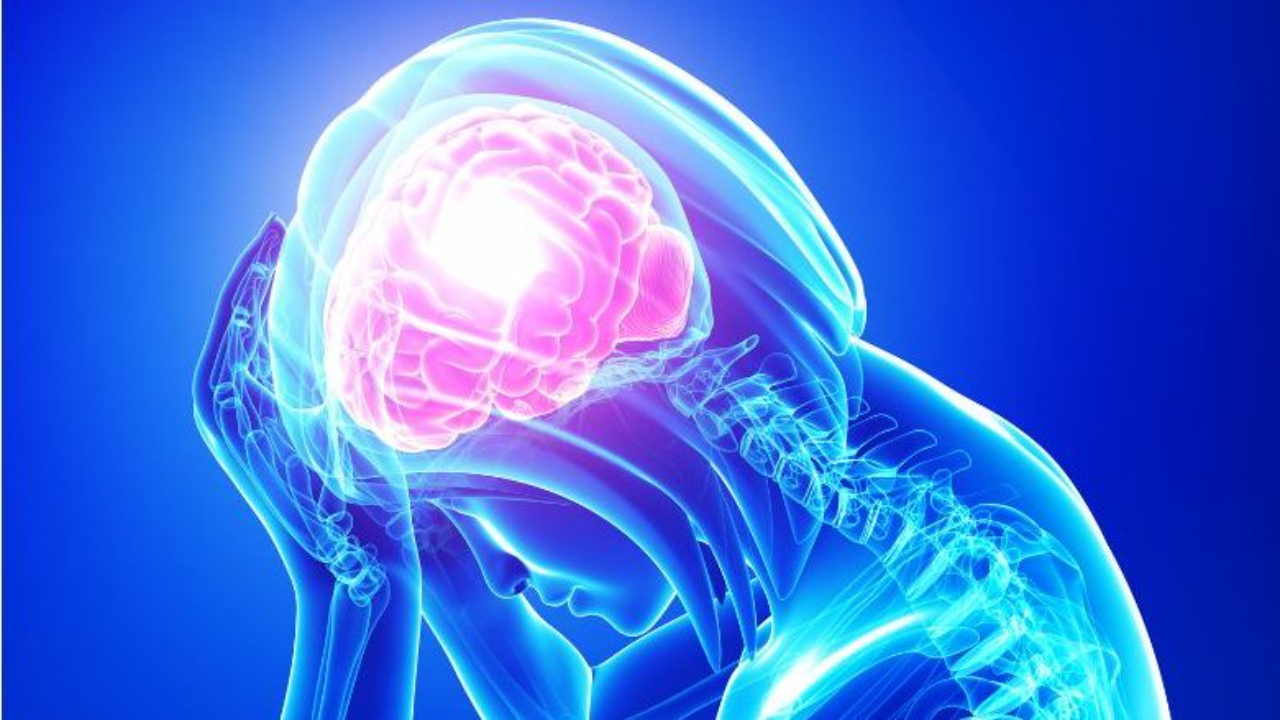Your Gut, Your Mind: The Surprising Connection Between Digestion and Brain Health
Apr 30, 2025
What if your anxiety, brain fog, or low mood wasn’t “all in your head”—but actually in your gut?
We now know the gut isn’t just responsible for digestion. It acts like a second brain, connected to your central nervous system through a sophisticated communication network known as the gut-brain axis. That means the health of your microbiome may be directly influencing your thoughts, mood, memory, and mental clarity.
Let's explore the science behind how your gut impacts your brain—and what you can do to optimize both.
Meet Your Second Brain: The Gut-Brain Axis
Your gut is home to over 100 million neurons and more than 100 trillion microorganisms, collectively known as the microbiome. These microbes help produce neurotransmitters, modulate inflammation, and send signals to the brain through the vagus nerve.
The communication is two-way: your brain influences your gut (think: butterflies when you’re nervous), and your gut influences your brain (think: brain fog when you eat poorly).
How an Unhealthy Gut Impacts the Brain
When your gut is out of balance—a state called dysbiosis—it can create a ripple effect on brain function. Here's how:
1. Neurotransmitter Disruption
Did you know that about 90% of your serotonin is made in your gut? Gut microbes also help produce dopamine and GABA, which influence mood, motivation, and relaxation. If your microbiome is off, so is your brain chemistry.
2. Increased Inflammation
Leaky gut allows toxins and food particles to cross into the bloodstream, triggering systemic inflammation. Chronic inflammation has been directly linked to depression, brain fog, memory issues, and neurodegenerative diseases.
3. Impaired Stress Response
A dysregulated microbiome alters your hypothalamic-pituitary-adrenal (HPA) axis, the system that governs your response to stress. The result? Higher cortisol levels, sleep problems, and a brain stuck in “fight-or-flight” mode.
4. Poor Blood-Brain Barrier Integrity
A healthy gut supports the brain’s protective shield—the blood-brain barrier. When gut health declines, this barrier becomes more permeable, making it easier for toxins to reach the brain.
Symptoms That Link Gut Health to Brain Health
Ask yourself:
-
Do I frequently feel foggy, forgetful, or unable to concentrate?
-
Do I experience mood swings, anxiety, or low mood without explanation?
-
Have I noticed more irritability, insomnia, or fatigue?
-
Do these symptoms seem worse after eating certain foods?
If you answered yes to one or more, your gut may be driving your brain symptoms.
The Science Is Clear: Your Microbiome Shapes Your Mind
Numerous studies now confirm the gut-brain link:
-
A 2019 meta-analysis found that individuals with depression consistently show altered gut bacteria compared to healthy controls. (Nature Microbiology)
-
Supplementing with certain probiotics, such as Lactobacillus and Bifidobacterium, has been shown to reduce anxiety and support cognitive performance.
-
Gut health protocols have even been used in adjunct therapy for autism, ADHD, and Parkinson’s.
How to Support the Gut-Brain Axis Naturally
The good news? You don’t need medication to start restoring your gut and brain connection. You just need to build better inputs.
1. Add Prebiotic-Rich Foods
These fibers fuel your good bacteria. Include:
-
Garlic, leeks, onions
-
Asparagus, artichokes
-
Bananas, oats, flaxseed
2. Eat Fermented Foods Daily
Live cultures support mood-balancing microbes:
-
Yogurt (with live cultures)
-
Kefir
-
Kimchi, sauerkraut, miso, and tempeh
3. Limit Sugar and Processed Foods
Excess sugar feeds yeast and bad bacteria that disrupt mental clarity and worsen mood.
4. Try Targeted Probiotics
Clinical strains for mood and mental health include:
-
Lactobacillus helveticus R0052
-
Bifidobacterium longum R0175
These strains have been shown in double-blind placebo-controlled trials to reduce symptoms of anxiety and depression.
5. Manage Stress
Chronic stress reduces microbial diversity. Support your gut-brain axis with:
-
Meditation
-
Journaling
-
Deep breathing
-
Nature walks
What You Might Notice When You Heal the Gut
Many people report:
-
Increased mental clarity and focus
-
Fewer mood swings and reduced anxiety
-
Better sleep and improved stress resilience
-
Elevated energy and reduced “afternoon slumps”
Healing the gut-brain axis is not a quick fix—but it’s a powerful one.
Start Today: A 5-Day Gut-Brain Reset
Day 1: Cut out processed sugar and artificial sweeteners
Day 2: Add 1 serving of fermented food
Day 3: Practice 10 minutes of mindfulness or breathwork
Day 4: Introduce one new prebiotic food
Day 5: Take a walk outside and write down how you feel
Final Thoughts: Healing the Gut, Empowering the Mind
Your mental state isn’t just psychological. It’s biological—and much of it starts in the gut. By taking care of your microbiome, you’re not only improving digestion—you’re unlocking sharper thinking, a brighter mood, and a more resilient you.
This is the power of gut-brain healing.
Clinically Researched Sources
-
Foster, J.A. et al. (2017). Gut microbiota and brain function: An evolving field in neuroscience. Neuropsychopharmacology
-
Liu, R.T. et al. (2020). A meta-analysis of gut microbiome and major depression. Biological Psychiatry
-
Messaoudi, M. et al. (2011). Assessment of psychotropic-like properties of a probiotic formulation. British Journal of Nutrition
-
Cryan, J.F. & Dinan, T.G. (2012). Mind-altering microorganisms: The impact of the gut microbiota on brain and behaviour. Nature Reviews Neuroscience

